When it comes to navigating the intricate world of legal matters, understanding the importance of a solid disclaimer is crucial. A well-crafted legal advice disclaimer not only protects the provider of the information but also ensures that the recipient is aware of the limitations of that advice. It's essential to communicate that the information shared is for general understanding and should not replace professional legal counsel tailored to individual circumstances. Ready to learn more about creating an effective legal advice disclaimer? Let's dive in!
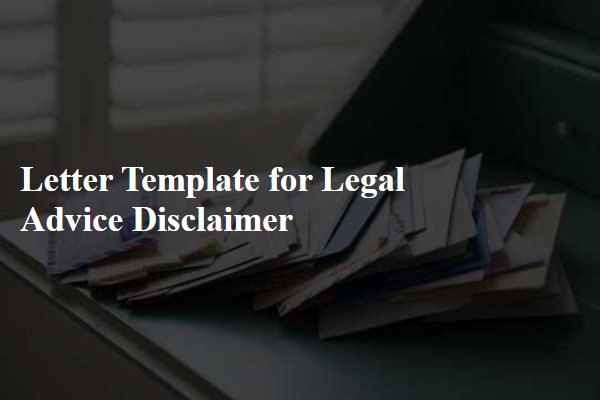
Liability Limitation
Legal advice disclaimers often aim to clarify the limitations of liability between the provider and the recipient. Legal consultations may involve complexities surrounding jurisdiction, including relevant laws such as the Statute of Frauds or rules governing attorney-client privilege. Understanding this context is crucial. Recipients should note that any advice provided is not a substitute for a thorough examination of specific legal circumstances. Areas such as contract negotiations, litigation outcomes, or regulatory compliance can vary significantly by state, such as California's legal standards versus those in New York. Furthermore, the provider bears no responsibility for any direct or indirect losses arising from reliance on the information provided, as it reflects general interpretations that may not apply universally across different cases or locales. Always seek personalized counsel from qualified professionals before making significant decisions.
Non-Reliance Statement
Non-reliance statements serve as legal disclaimers indicating that the information provided should not be interpreted as professional legal advice. Such disclaimers are often utilized in correspondence to clarify that recipients should consult qualified legal professionals for specific legal matters. Legal terminology, such as "non-reliance" or "professional legal advice," emphasizes the importance of independent judgment. Jurisdiction also plays a crucial role, as laws can significantly vary between states or countries, affecting how information should be applied. Including a disclaimer can protect against liability for any actions taken based on the provided information, particularly in sensitive contexts where unintentional misinterpretation could lead to significant consequences.
Confidentiality Clause
Legal advice disclaimers often emphasize the importance of confidentiality in communications between clients and attorneys. Information shared during legal consultations must remain private to protect client interests. Each jurisdiction, including places like California and New York, has specific regulations regarding attorney-client privilege, which ensures that sensitive information does not get disclosed without consent. Violations can lead to legal repercussions for the attorney, undermining the trust that is essential in these professional relationships. It's crucial for clients to understand that sharing details of their case outside the appropriate confines can jeopardize their legal standing. Legal counsel is committed to maintaining strict confidentiality unless otherwise permitted by the client, ensuring that all discussions surrounding cases remain protected.
Jurisdiction Specification
Legal advice disclaimers specify the limitations of advice provided within particular jurisdictions, ensuring compliance with local laws. For example, legal advice given in California (known for its unique laws regarding privacy, employment, and real estate) may not be applicable to residents of Texas, where regulations differ significantly, particularly surrounding property rights and business transactions. Jurisdiction influences the enforceability of contracts and litigation processes, highlighting the necessity for clients to consult legal professionals versed in their specific geographical area. This delineation prevents misunderstandings and ensures that individuals receive counsel that aligns with their local legal environment.
Professional Relationship Indicator
Legal advice disclaimers serve to clarify the professional relationship between lawyers and clients, ensuring both parties understand their rights and responsibilities. Legal counsel is provided by licensed attorneys, often in specialized areas such as family law, criminal defense, or corporate governance. Individuals should not rely solely on written communications for legal advice without a formal engagement agreement. Additionally, any exchange of information prior to the establishment of an attorney-client relationship may not be legally privileged, potentially exposing sensitive information in a legal context. Understanding the nuances of these disclaimers protects clients and lawyers, guiding expectations and promoting clear communication throughout the legal process.
Letter Template For Legal Advice Disclaimer Samples
Letter template of legal advice disclaimer for professional presentations.
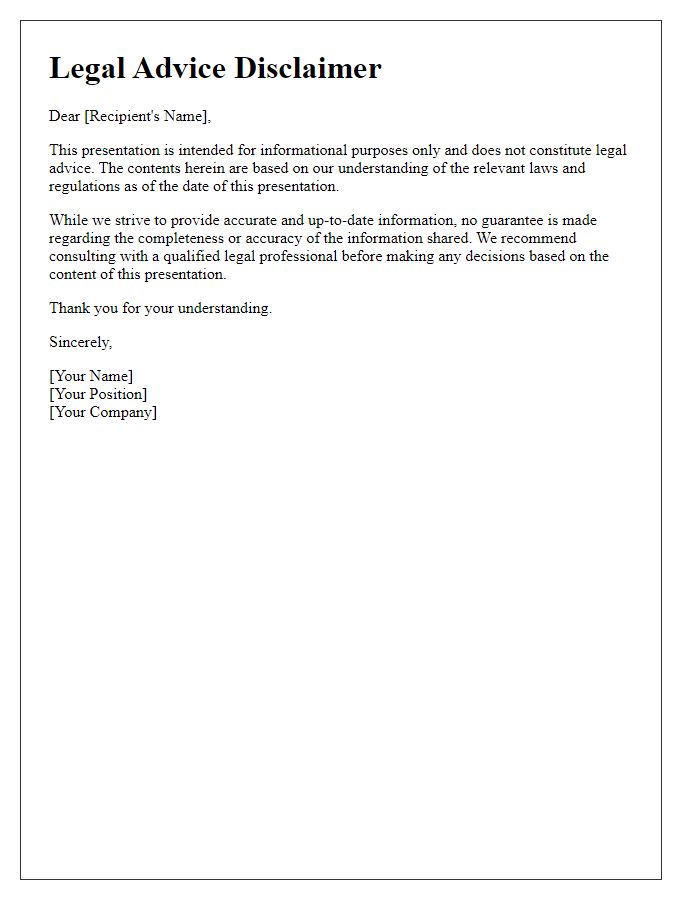
Letter template of legal advice disclaimer for contracts and agreements.
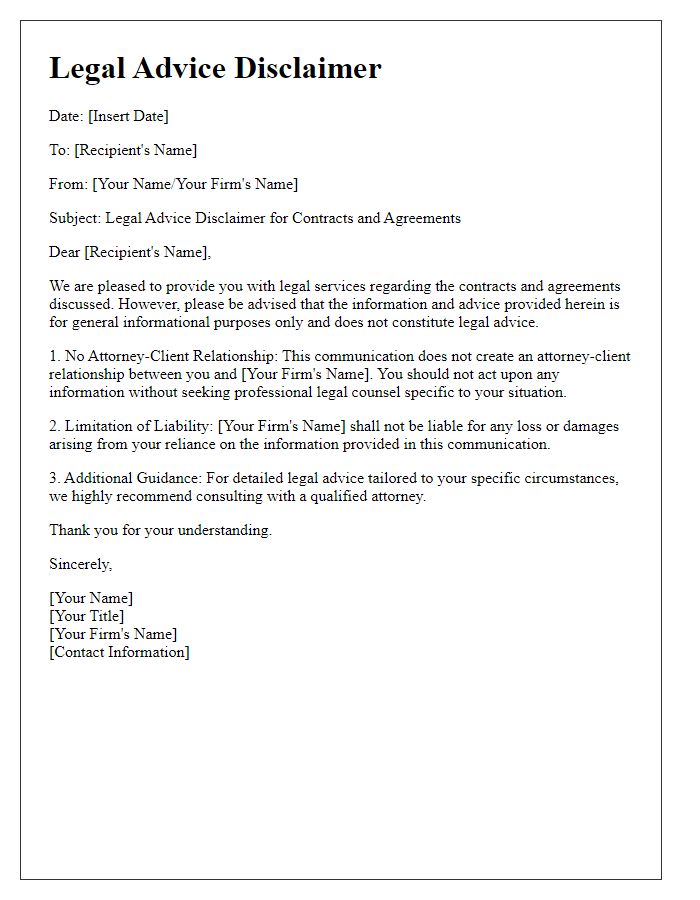

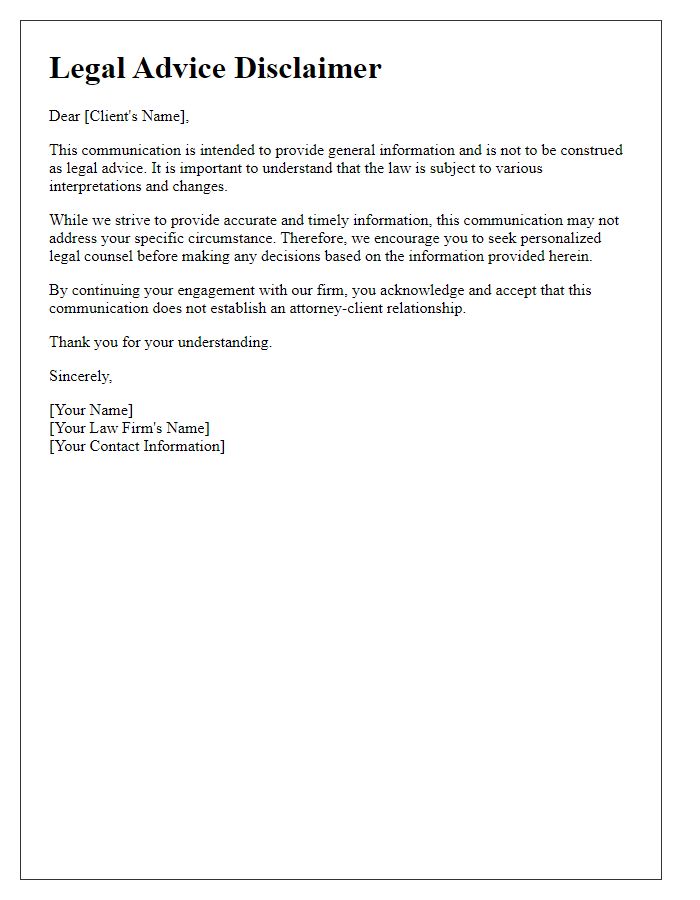
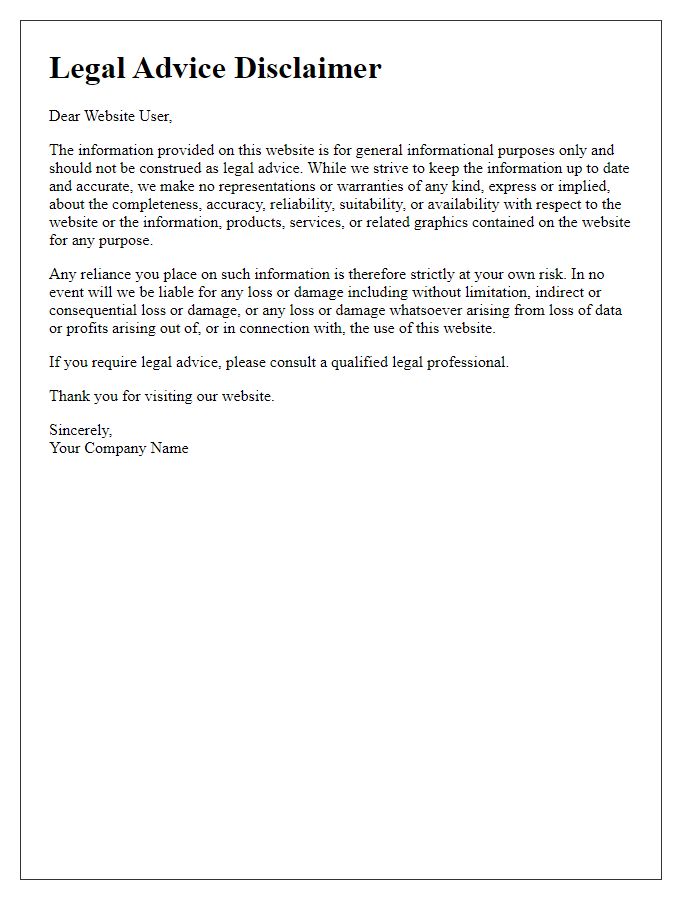
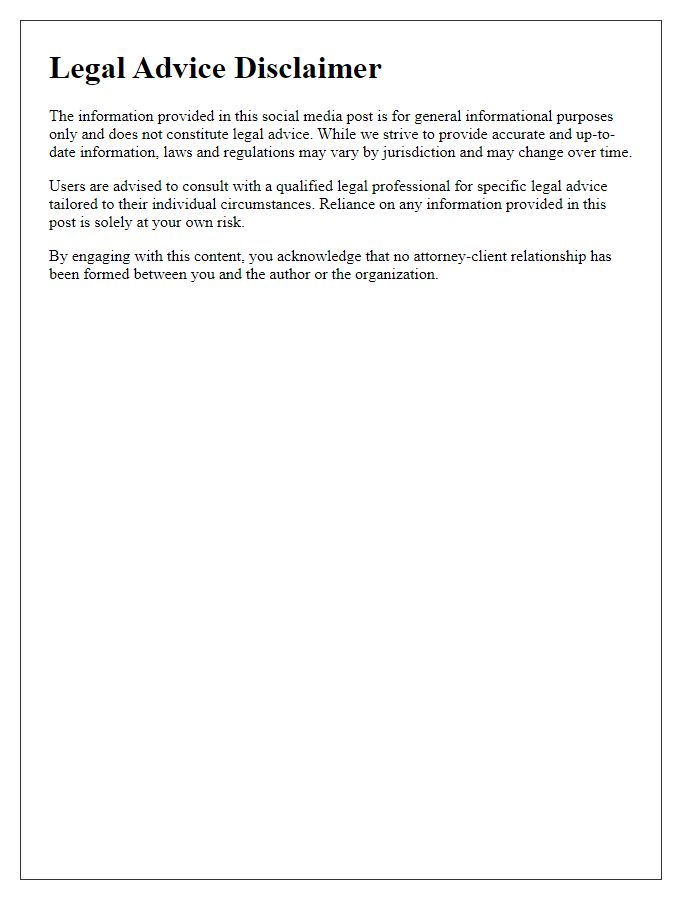
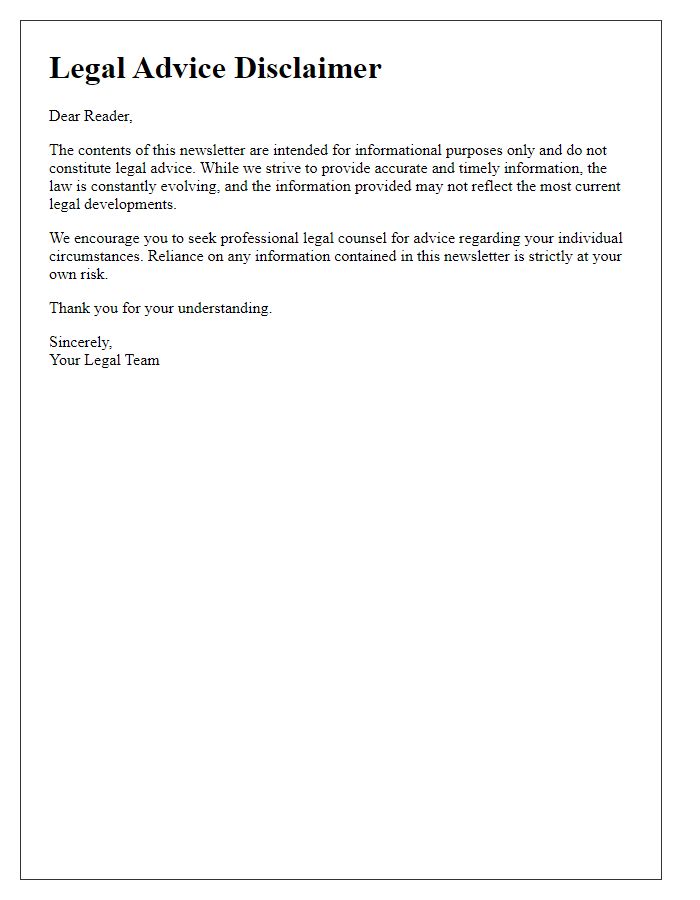
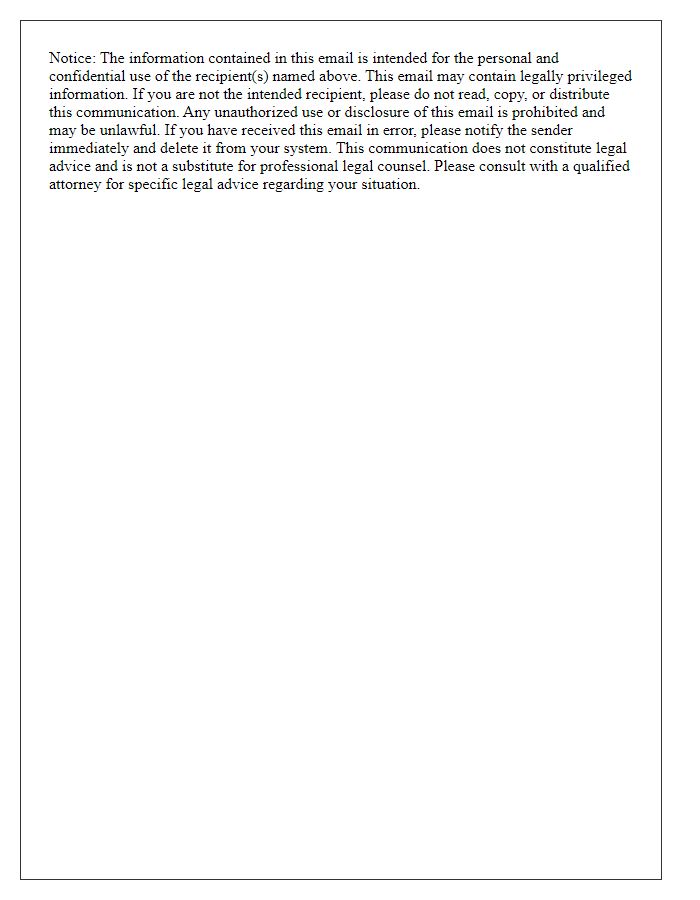
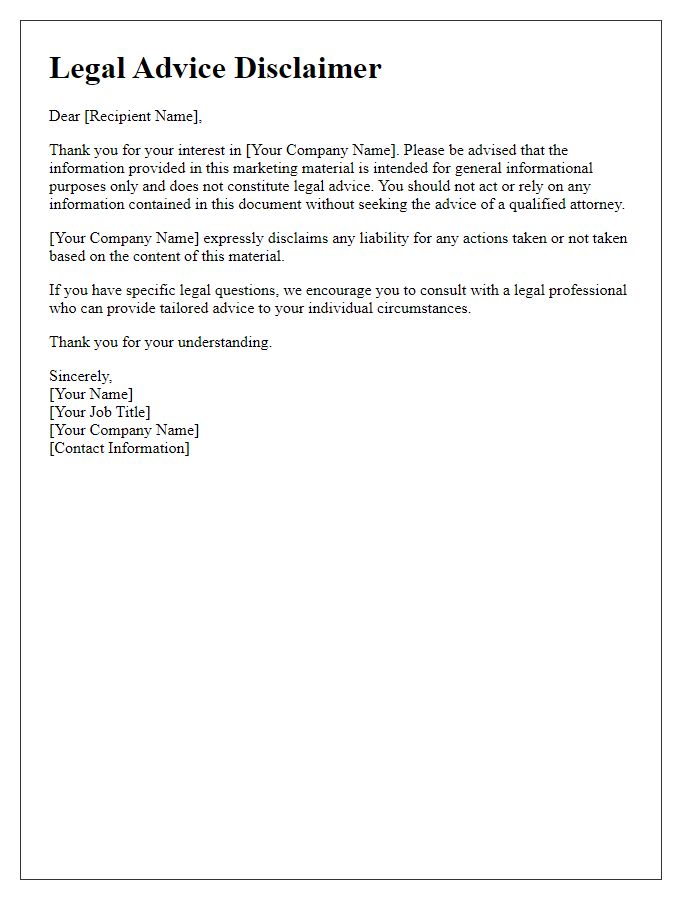
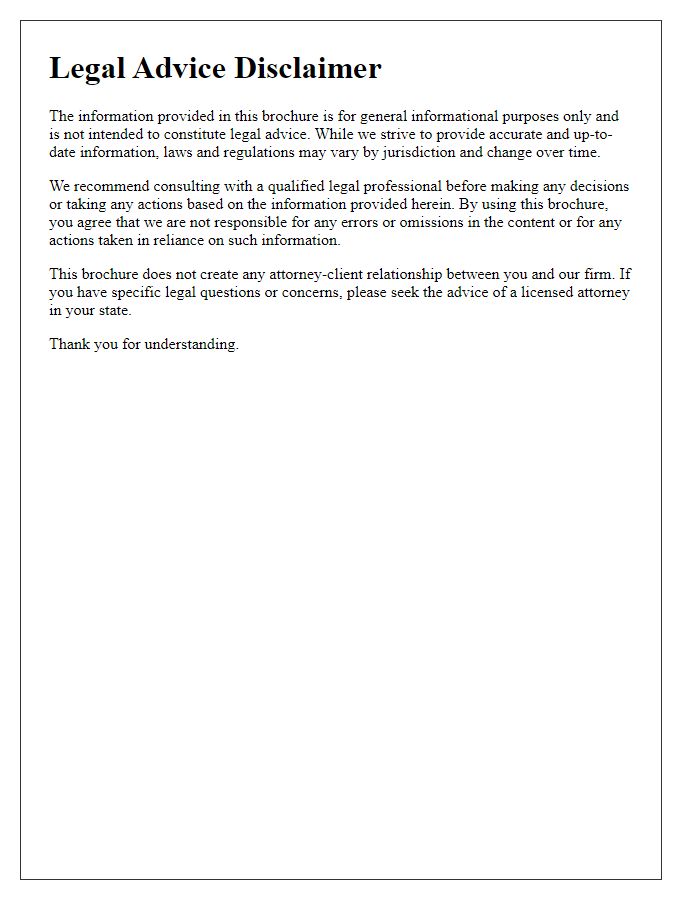
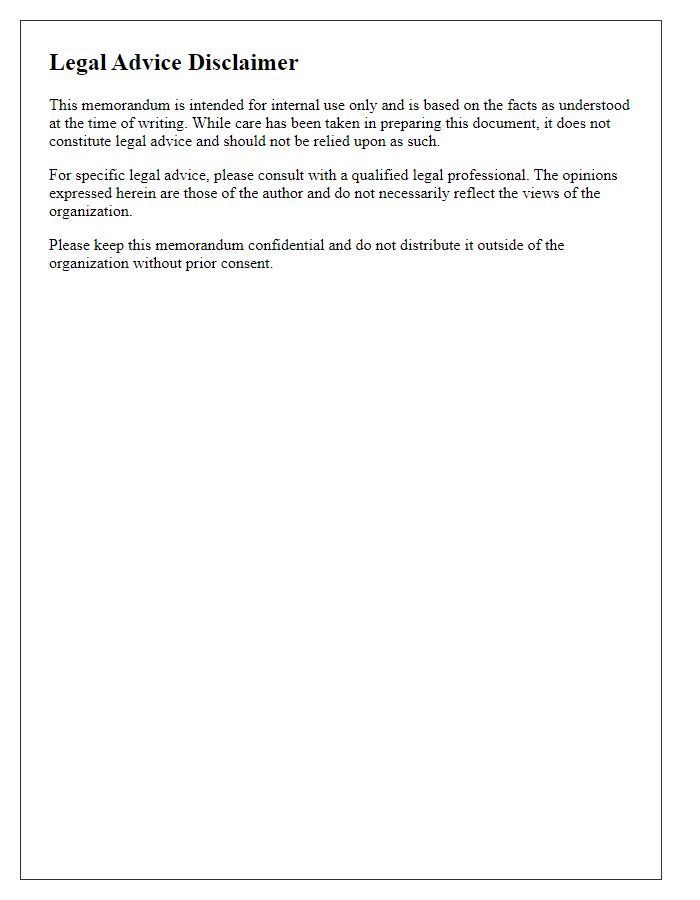


Comments